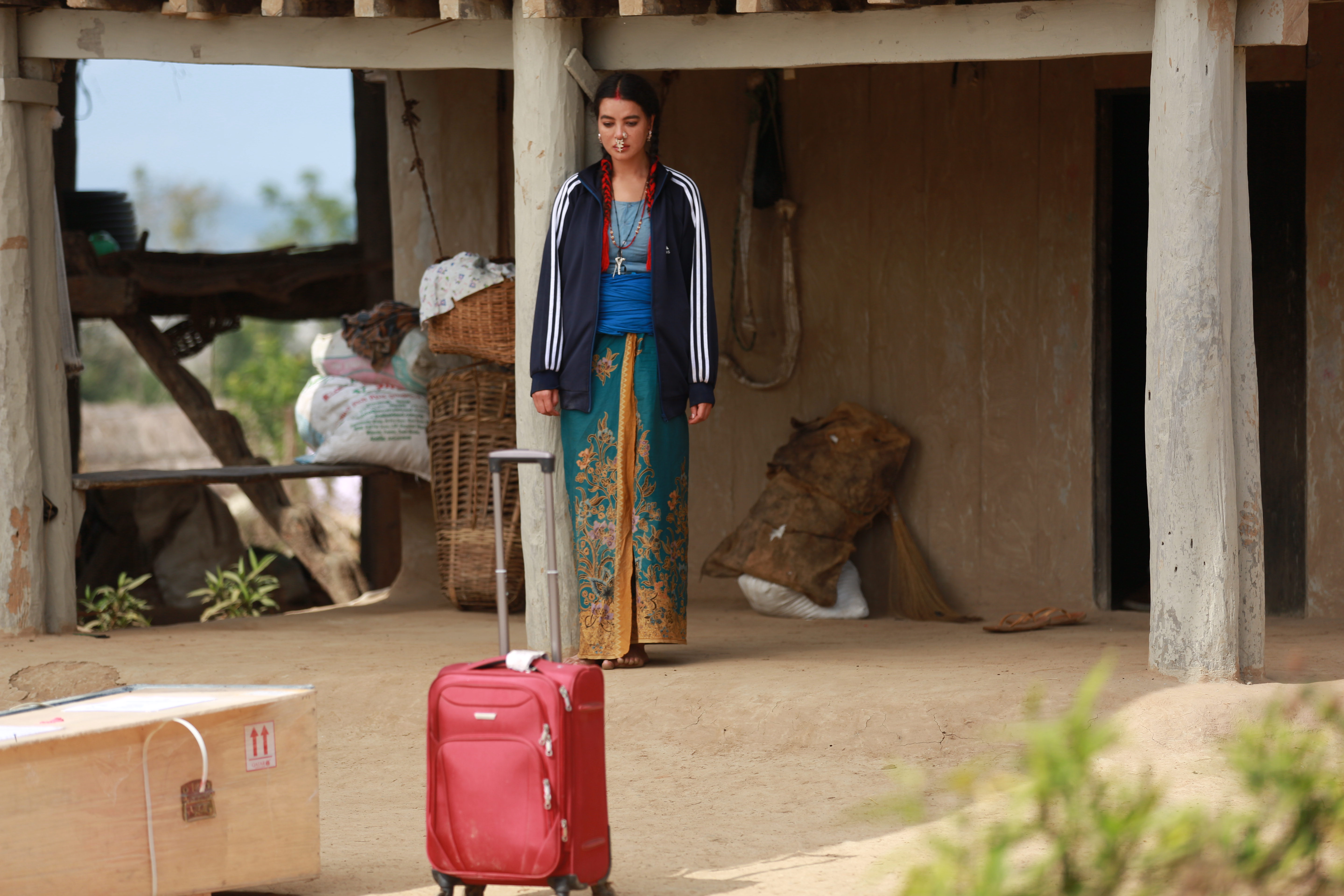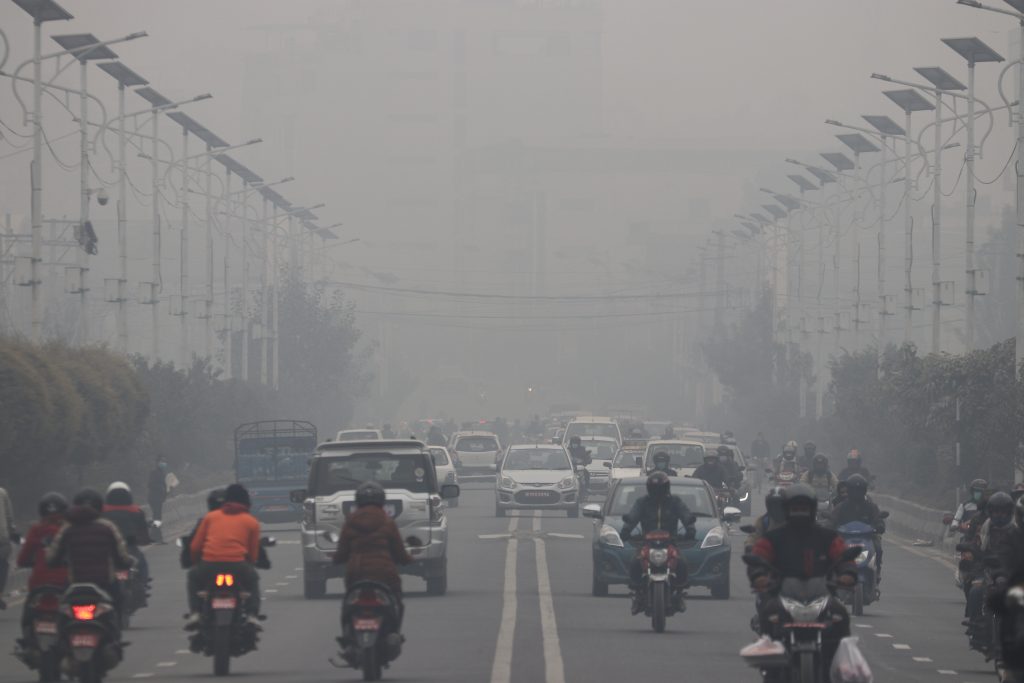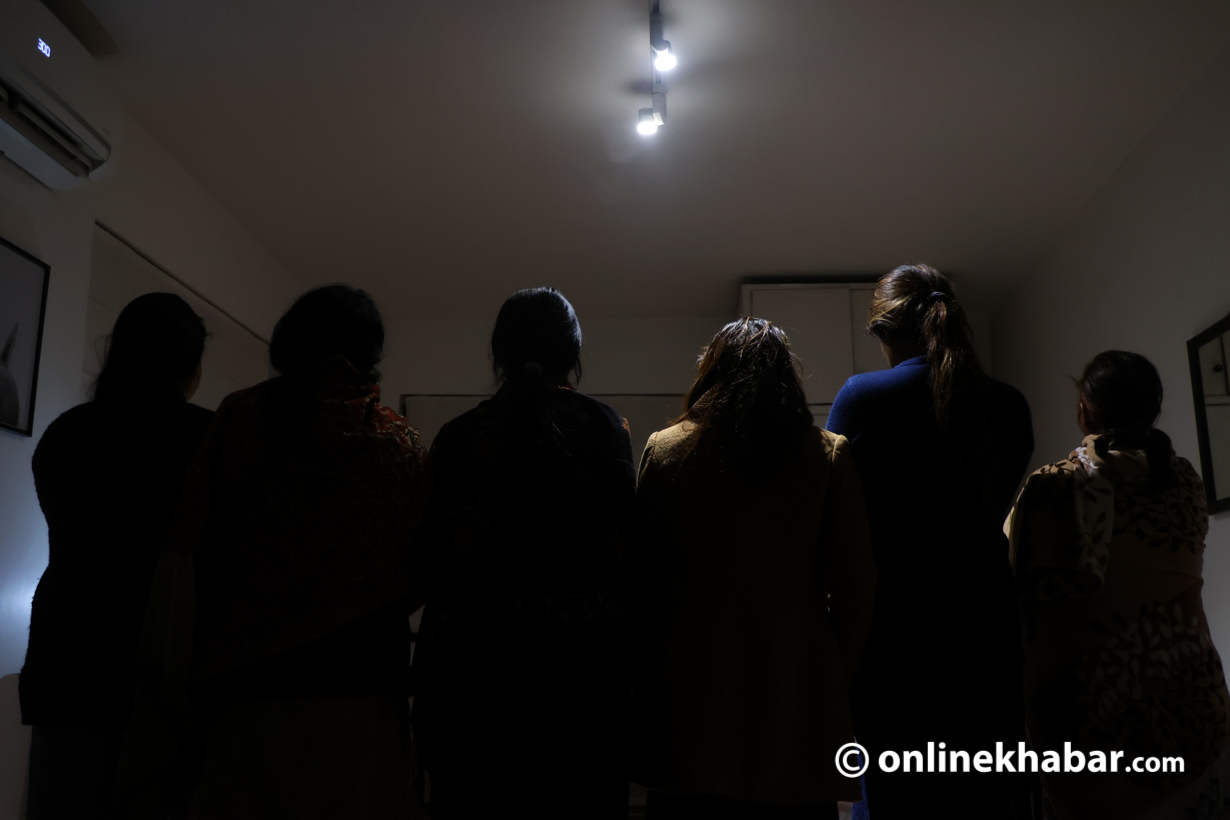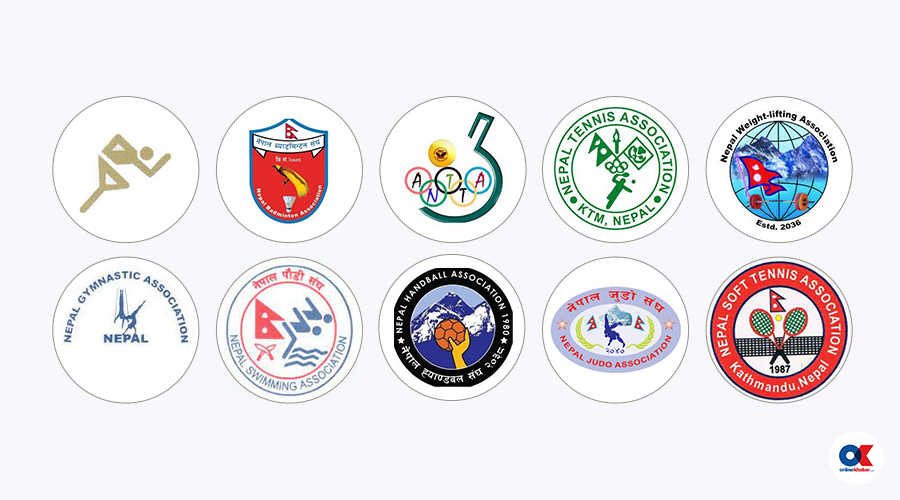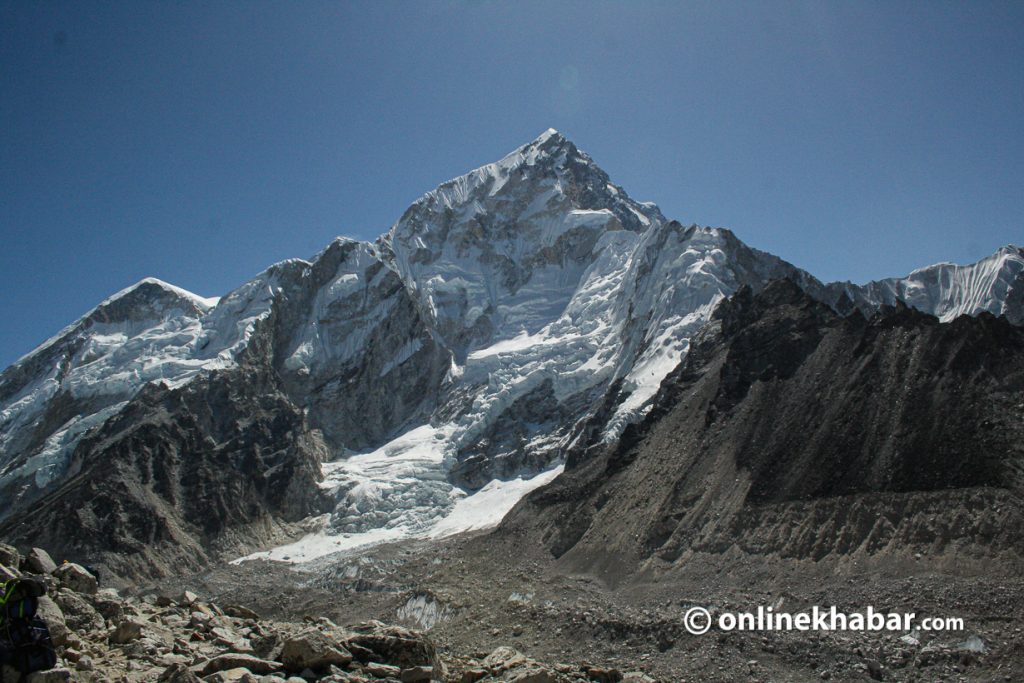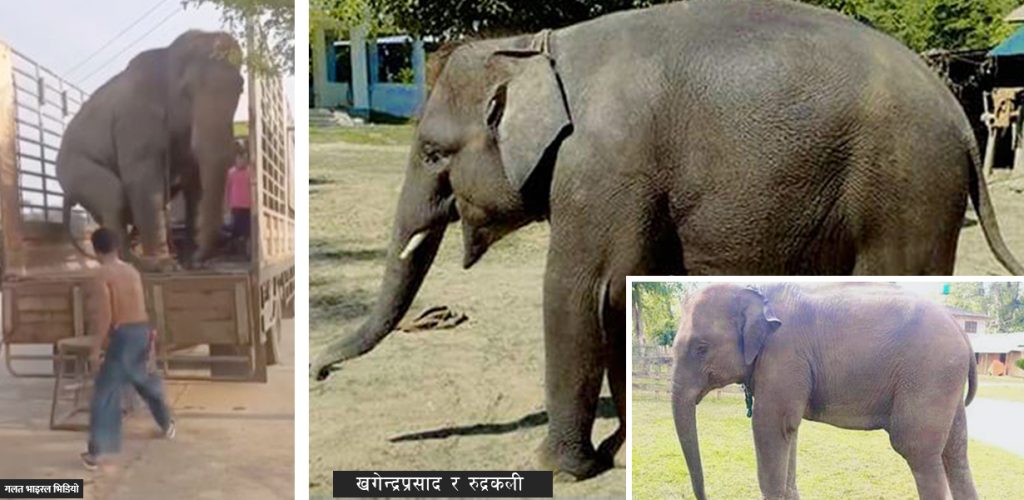
In 2017, there was a huge limelight for Nepal’s trail running scene when an ex-Maoist child-soldier won the People’s Choice Adventurer of the Year award for her impressive performances in the international trail running championships and an incredible story that touched runners and non-runners around the world, through her famous documentary- Mira filmed by a British filmmaker.
Mira Rai was discovered in 2014 when she won her first 50k trail race in Kathmandu, which was organised by the UK-based trail race director, who was solely organizing the Nepali trail races for the past few years and played a key role in giving opportunities to many Nepali trail athletes. Nepali team of sky runners Bhim Gurung, Bed Bahadur Sunuwar, Tirtha Tamang, and Purna Tamang had also won notable accolades in the international trail and sky-running championships with the help of foreign supporters. Earlier, Dawa Dachhirri Sherpa in 2003 had won the first edition of 170 km UTMB in France and few more consecutively, forever etching his name in the world‘s most popular trail race championships held in Chamonix every year.
Since 2017, there has been increasing momentum in the number of trail races being organised in Nepal at the local level with the concept of promoting local tourism and supporting the athletes. There are multiple local trail race organisers in Kathmandu, Pokhara, and other districts and the government seems to be convinced to pour in investments to encourage adventure running further.
However, observing the trail running trend for the past seven years, leaving aside the duration of the pandemic and its aftermath, there has been an increasing volume of trail runs organised in the capital and at the local level for sports and tourism promotion but there are no impressive returns of investment to attract the trail running tourists in the races especially organised by the rural municipalities, youth clubs and in general sole Nepali organisers.
The above conclusion is based on an experiential and anecdotal observation only, of the trail race organisers and the team, the number of turnouts of the participants, the number of international and national participants, the number of paid and sponsored athletes, the consistency of attracting the sponsors, and the value that the race offers to the participants and the local region. The quantitative study of the returns of organising a trail race could not be done immediately and will need a progressive study from 2-3 editions since the launch of an event.
We can make a study of a few well-organised Nepali races with sole Nepali race directors like the Bhojpur Trail Race, Khilji Demba Trail Race, Panchase Trail Race, Jumla Rara Marathon, Fishtail Race, Sailung Ultra, etc.
There are a few observations that impede the success of harnessing the potential of trail races in Nepal, that we need to discuss, debate, and address at the grassroots level involving concerned authorities from the central and federal sports committee, tourism development committee, organisers, media, etc
Popularity doesn’t equate competency

The demography of international people who have spare money to spend on recreational sports is usually niche, mid-aged, professionals at a mid to high-income level, who are mostly technically sound and are looking for a fair challenge as well as comfortable leisure in their active vacation. This is true not only for the general foreign participants but also for the recreational athletes within Nepal. They pay for the proper information and race management. To build trust amongst such a group of participants, Nepali organisers must develop skills or hire experts who can help them through every process of creating an event, timely marketing, and managing a trail race.
Merely inviting a popular face does not give confidence in the competency of the race organisers.
If analysed deeply, none of the Nepali popular mountain athletes were an outcome of a national effort. Apart from the Karnali club with coach Hari Rokaya, functioning on frugal means and low management capacity, there are no other structured training facilities and guidance for trail runners in Nepal. Nepal needs to focus on learning and capacity building.
The unbalanced focus on just the popular celebrity figures in the media has just made the horde of becoming the next celebrity face amongst upcoming athletes more common. The athlete with a dedicated social media team might be successful in attracting media attention and sponsorships ad hoc but it does not guarantee professional success. While popularity is sought by sponsors and media alike, it needs to be balanced with a career strategy that will allow a professional athlete to stay in the game as long as possible.
Trail running ecosystem is massively under-developed

Trail running sport provides a huge opportunity to develop Nepali villages to prepare their trails for trail and mountain running, and bring professional opportunities to the young people in the local areas as race directors, course managers, patrolling and emergency managers, logistics managers, media and communication officers, liaison and sponsorship officers, first aid guides etc. However, public spending is short-sighted and is limited only to one event without much neutral post-event impact investigation.
Trail running happens in a natural environment- the culture and local heritage possessed by Nepal is a lucrative opportunity. However, the urban development in the valley and hilly regions, the massive “development” project without substituting for the footrails in the villages, and the loss of nature and culture will not allow the sport to flourish in many parts of Nepal despite the potential.
There have not been any capacity-building programs at any level of the public bodies, media, athletes, etc to make the technicalities of the adventure running sport more familiar. There are international governing bodies that can give more advantages and guidance for a local trail race in Nepal, however, not many are aware of the process to evaluate the course for the suitability of a trail race through international trail running associations, or need to benefit a participant at a globally competitive level through their competitive scores when the races are enrolled.
In 2018, a well-known athlete’s committee came up with the massive stadium project in Bhojpur to house about 20,000 spectators. The popularity without proper presentation of the nature of the sport poses the danger of public spending on useless infrastructure which further might harm the natural environment needed for flourishing adventure running.
We must learn from countries excelling in trail sports to engineer trails that are conducive to trail running, hiking, trekking, etc which would be less taxing to the knees and more pleasurable to walk on. Merely constructing cemented stairs and stadiums doesn’t account for trail infrastructure development for sports or tourism, especially in Nepali terrain.
Inadequate market to support trail running in Nepal

This is a two-way street, even though there has been considerable progress in the volume of runners in road marathons in Kathmandu, Dharan, or Pokhara, trail running has not been able to convert the road runners into a trail scene yet nor been able to sponsor a trail runner professionally.
Volume and brand visibility are two attractive incentives for the local outdoor sports and supporting companies agencies to invest in an event. The sustainability of an adventure race event depends on its popularity and ability to generate revenue, it is not possible without commercial agencies joining the force.
Vandalizing the foreign race directors instead of using them as an opportunity
At this phase, Nepal needs to learn from the foreign race organisers instead of tax-vandalising or introducing sudden limitations and challenges. Foreign race organisers come with a lot of creativity and expertise to organise such events and attract international race participants which are currently impossible for even a decently experienced Nepali race organisers. Nepal can use this opportunity to develop human resources and skills to broaden the adventure running scope instead of discouraging them or creating situations where many of them are compelled to keep low-key or stop coming to Nepal at all.
Making an income through a race event is extremely challenging until there are multiple networks and sponsoring agencies on board. Everyone who has been able to successfully pull up any event has gone through many challenges themselves to be able to get a trustworthy reputation. Even introducing a licence for an internationally organised licence incurs facility and responsibility for security for the event and participants from the federation.
General lack of professionalism and teamwork
Selling a recreational sport like trail running activities needs as much skill as needed in any other medium-high skilled profession. Organizing world tours and championships in adventure running happens through a bidding process. The event needs to have completed at least three years and fulfil certain criteria to win the bid. There needs to be proper planning, information dispatch, communication, and management at all levels. It’s an orchestra where the coordinated effort of each musician and backstage makes a good symphony.
There is a general lack of skilled collaborative effort and acknowledgment of teamwork in Nepal not just in sports but in many other sectors as well. The majority of people aspire for a hierarchy, prominent designation, and a media highlight but in the process, they leave the team working at the grassroots behind. We need to bring a horizontal leadership position where every effort counts, and we encourage the young people towards specialized vocational training like course mapping, route marking, brand building, photography and videography, social media marketing, graphic designing, planning and strategy, budgeting, etc.
Since the adventure running sports in Nepal were made famous by the international race organisers, it might be an idea to consider inviting and investing in the popular race organisers to come to Nepal and organise the events as done by Doi Inthanon Thailand by UTMB to boost the sports tourism in Thailand. Some countries actively allow foreign organisers to conduct events in their countries as a collaboration to build a competent image and drive participation. At this stage, Nepal needs to debate the strategy to build a solid foundation for the sport through collaborative and inviting efforts rather than policing the amount of tax paid by foreign organisers or licensing the sport altogether.
At present, to put it straight- it seems the local bodies are organising the trail races because there is a public fund allocated instead of the aspiration to organise a quality event to promote sports and tourism in their respective region.
Geographically and culturally Nepal is blessed with an abundance of natural ecosystems, a rich diverse culture, and fascinating communal harmony. Nepal has never been colonised, neither has it faced extreme famine or any other catastrophe to traumatise the collective psyche, which could be one of the several reasons for our friendly and laidback nature.
As the world is shifting to a balance between globalisation and localisation, from mass production to luxury craftsmanship, from more insecure urbanisation to self-dependant rural development – Nepal can pose as a Shangri-la fulfilling all the environment and spiritual needs of the modern-day people.
The adventure running sport single-handedly can help develop the Nepali rural environment more holistically but without long-term vision and proper effort, it will just be another squander of public money and a failure to tap into the opportunity due to delusional ignorance.




